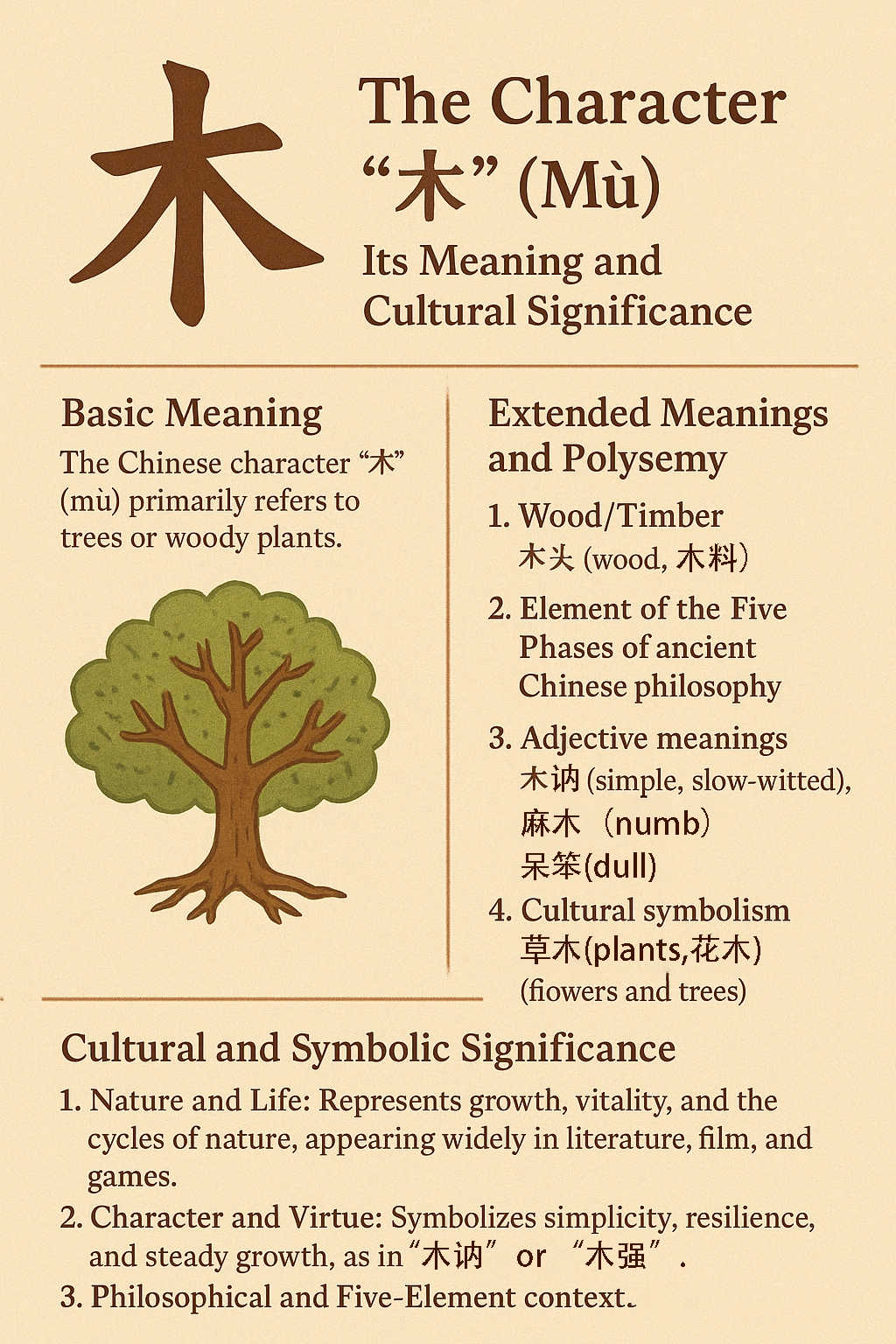Character “木” (Mù)

Its Meaning and Cultural Significance
Basic Meaning
The Chinese character “木” (mù) primarily refers to trees or woody plants. In Chinese writing, “木” is also a basic radical, commonly used to indicate words related to trees or wooden objects. Its pictographic form resembles a tree, with branches at the top and roots at the bottom.
When combined with other characters, “木” forms new words with specific meanings:
- 枝 (zhī): “木” + “支”, representing a tree branch;
- 根 (gēn): “木” + “艮”, symbolizing tree roots anchored in a mountain;
- 杆 (gǎn): “木” + “干”, representing the tree trunk, without branches or roots.
These combinations demonstrate how Chinese characters build concrete images from the basic concept of a tree.
Extended Meanings and Polysemy
The character “木” carries a variety of extended meanings:
- Wood/Timber: Referring to tree material, e.g., “木头” (wood), “木料” (lumber);
- Element of the Five Phases: In ancient Chinese philosophy, “木” represents the East, spring, and the virtue of wood (wood energy);
- Adjective Meanings: Describing traits such as “木讷” (simple, slow-witted), “麻木” (numb), or “呆笨” (dull);
- Cultural Symbolism: Associated with nature, life, and growth, e.g., “草木” (plants) and “花木” (flowers and trees).
Cultural and Symbolic Significance
“木” holds rich cultural symbolism:
- Nature and Life: Represents growth, vitality, and the cycles of nature, appearing widely in literature, film, and games;
- Character and Virtue: Symbolizes simplicity, resilience, and steady growth, as in “木讷” or “木强”;
- Philosophical and Five-Element Context: As part of the Five Elements, it conveys themes of life, regeneration, and harmony with nature.
Usage and Context
- As a noun: tree, wood, wooden objects;
- As an adjective: dull, numb, slow-witted;
- In culture and literature: Often used in poetry and idioms to express nature, life, and growth.
Summary
The character “木” is rich and multi-layered. From its core meaning of trees and timber to its extended significance in philosophy, personal character, and cultural symbolism, “木” exemplifies the depth and imagery of Chinese characters. Its use across different contexts reflects the Chinese reverence for nature, life, and enduring wisdom.